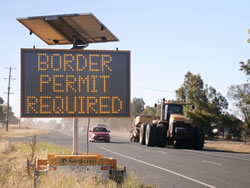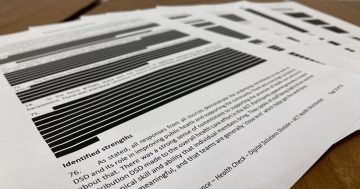 The Victorian Ombudsman has called the Department of Health’s border exemption scheme during the State’s recent border closure “unjust” following her investigation which found the majority of applications did not reach a decision-maker.
The Victorian Ombudsman has called the Department of Health’s border exemption scheme during the State’s recent border closure “unjust” following her investigation which found the majority of applications did not reach a decision-maker.
Tabling her Investigation into decision-making under the Victorian Border Crossing Permit Directions Report, Ombudsman Deborah Glass said her Office received 315 complaints about the scheme from people who were refused entry to attend funerals, vital medical appointments, care for sick family members, return home to care for animals, or to start jobs.
Ms Glass did not criticise the decision to close the border, saying it referred to public health advice, considered the human rights implications and allowed for the exercise of discretion.
“But while discretion to approve exemptions was available, it was exercised narrowly, and most applications did not even reach a decision-maker,” she said.
“I recognise that the Department of Health’s intentions were to protect people in Victoria from a dangerous virus that had already seeded through cross border incursion, and that the Department was under enormous pressure dealing with the exigencies of the public health emergency.
“While we did not review all decisions, and I do not suggest that all were unfair, the overwhelming majority of applications did not get to a decision-maker at all, and the guidance did not change even as case numbers in Victoria grew and the risks evolved.”
Ms Glass said the consequences of this were vast and unfair for many thousands of people stuck across the border.
“The result was some of the most questionable decisions I have seen in my over seven years as Ombudsman,” she said.
“The effect of a complex and constrained bureaucracy meant some outcomes were downright unjust, even inhumane.”
Ms Glass said the team responsible for border exemptions was scaled up from 20 staff in early July to 285 by early September, but staff responsible for categorising and prioritising applications were expected to complete 50 per hour – an average of almost one every 30 seconds.
She said the evidence required to be granted an exemption was extensive, ranging from statutory declarations, proof of residence or ownership of animals, letters from doctors and statements of relationship to people who were dying.
“It appeared to me that the Department put significant resources into keeping people out rather than helping them find safe ways to get home,” she said.
Ms Glass recommended the Government publicly acknowledge the distress caused to affected people; improve policy and guidance for such schemes and consider ex gratia payments on application to help cover the financial cost of not being able to travel home.
The Ombudsman’s 129-page Report can be accessed at this PS News link.











